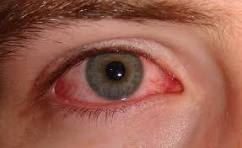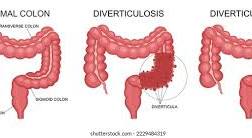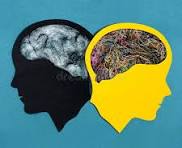INTRODUCTION
Health is wealth—a simple yet profound truth. One sickness can drain a
lifetime of savings, leaving individuals and families in distress. While modern
medicine has made remarkable strides in diagnosing and treating diseases, many
health conditions continue to defy medical solutions, pushing us to explore
alternative approaches.
Natural remedies have been a cornerstone of healing for centuries, long before
the advent of modern pharmaceuticals. Across cultures and civilizations, people
have relied on nature’s gifts—herbs, roots, fruits, and holistic practices—to
restore health and vitality. While this encyclopedia does not seek to undermine
the importance of medical science, it aims to complement it by shedding light
on time-tested natural solutions. It encourages further research into the power of
nature in healing, offering insights into remedies that have provided relief to
countless individuals.
Natural Remedies For Arrhythmia
Arrhythmia refers to any irregularity in the heart’s rhythm, whether
it’s too fast, too slow, or erratic. It can range from benign to life-
threatening, depending on the cause and severity. While conventional
medical treatment is essential for managing arrhythmias, some natural
remedies may support cardiovascular function and help reduce
symptom frequency. However, these remedies must never replace
professional medical care and should be used only as
complementary measures with your doctor’s guidance.
1. Hawthorn Berry:
How it works: Hawthorn berries contain flavonoids that support
cardiovascular health by improving coronary blood flow and
stabilizing heart rhythm. Research suggests they may be
beneficial in cases of mild arrhythmia by supporting heart muscle
contractions and reducing oxidative stress.
Preparation: Boil 1 teaspoon of dried hawthorn berries in a cup
of hot water for 10–15 minutes. Strain and drink up to three times
daily.
Where to find: Available as teas, extracts, or capsules in health
food stores and herbal markets.
2. Garlic:
How it works: Garlic supports heart health by lowering blood
pressure, improving cholesterol levels, and enhancing circulation,
which can indirectly stabilize heart rhythm. It has mild blood-
thinning effects and may reduce vascular inflammation.
Preparation: Incorporate raw or cooked garlic into daily meals,
or take odorless garlic capsules.
Where to find: Fresh garlic is readily available in local markets;
supplements are sold in pharmacies and health food stores.
3. Fish Oil:
How it works: Rich in omega-3 fatty acids (EPA and DHA), fish
oil helps regulate electrical impulses in the heart, reduce
inflammation, and lower triglycerides. Clinical studies suggest
omega-3s can reduce the risk of atrial fibrillation recurrence.
Preparation: Take fish oil capsules according to product
instructions, or consume fatty fish like salmon or sardines 2–3
times a week.
Where to find: Widely available in pharmacies, supermarkets,
and health shops.
4. Magnesium:
How it works: Magnesium helps control muscle and nerve
function, including the electrical activity of the heart. Low
magnesium levels can trigger or worsen arrhythmias, especially
in those with underlying deficiencies.
Preparation: Take magnesium supplements only as
recommended by a healthcare provider. Foods high in magnesium
include spinach, almonds, black beans, and whole grains.
Where to find: Magnesium supplements are sold over the
counter in various forms (citrate, glycinate, oxide).
5. Coenzyme Q10 (CoQ10):
How it works: CoQ10 acts as a powerful antioxidant that
supports mitochondrial energy production in heart cells. It may
reduce oxidative stress and improve the heart’s pumping
efficiency, aiding in the stabilization of rhythm.
Preparation: Take CoQ10 supplements as directed—usually
100–300 mg per day, depending on the formulation.
Where to find: Found in capsules or softgels at health food stores
and most pharmacies.
6. Aloe Vera:
How it works: Aloe vera has been reported to promote blood
circulation and reduce internal inflammation, which may support
overall cardiovascular stability. While scientific backing for its
role in arrhythmia is limited, some individuals report general
wellness benefits.
Preparation: Mix 1–2 tablespoons of aloe vera gel into water or
juice and drink once daily. Ensure the aloe product is food-grade
and free of aloin.
Where to find: Available fresh from aloe plants or in bottled
form at organic markets and pharmacies.
Key Consideration:
Arrhythmia natural remedies such as hawthorn, garlic, and CoQ10 may
contribute to a supportive heart-health regimen, but they are not
substitutes for medical treatment in the case of arrhythmia. Irregular
heart rhythms can signal serious conditions like atrial fibrillation,
ventricular tachycardia, or heart block, which require accurate
diagnosis, ongoing monitoring, and potentially medication or surgical
intervention. Some supplements may also interact with prescribed heart
medications like beta-blockers or anticoagulants. For this reason, it is
crucial to consult a qualified healthcare provider before using any
natural remedy for arrhythmia. Adopting a healthy lifestyle, including
proper diet, hydration, regular physical activity, and stress
management, remains the cornerstone of heart health.



